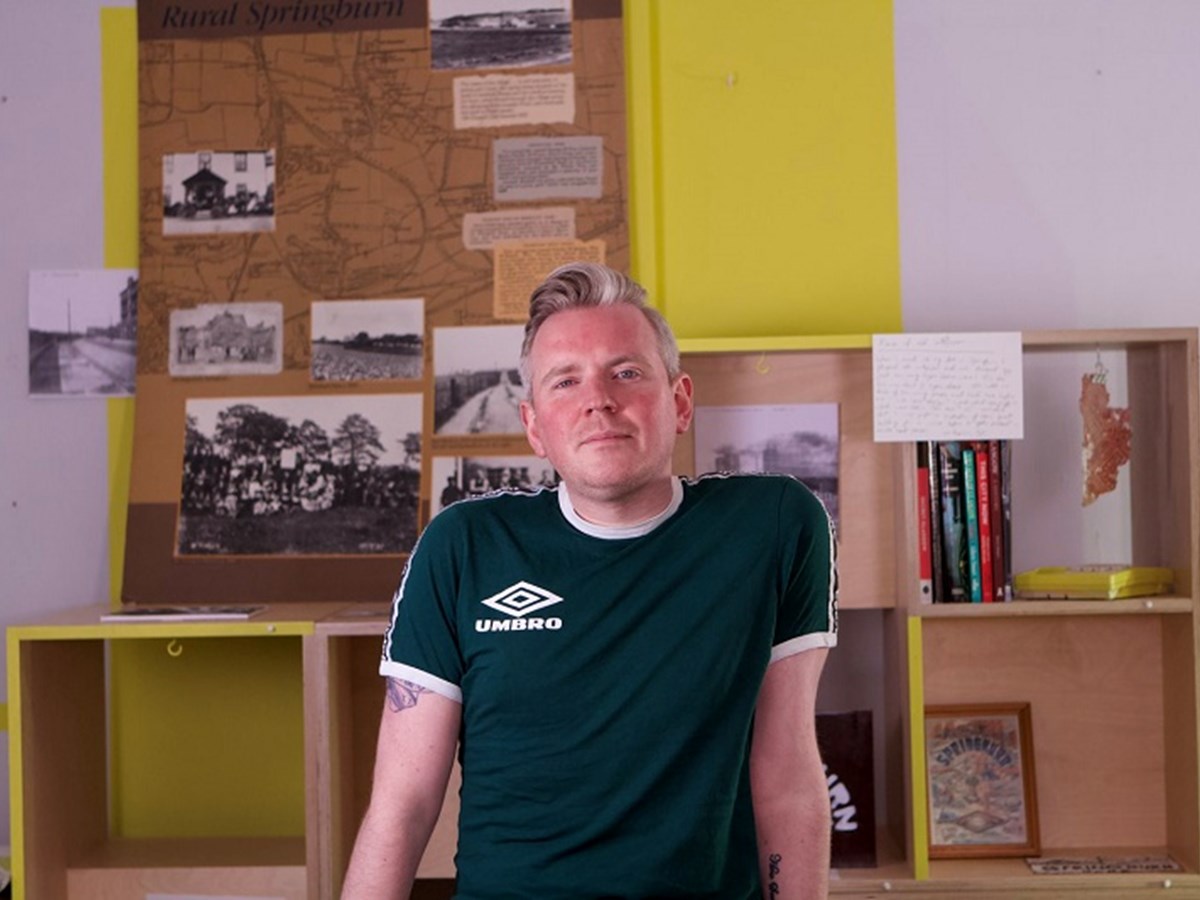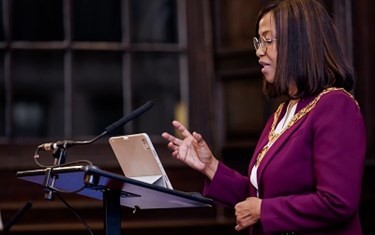 Sir Patrick Geddes is widely regarded as the founder of modern town planning and every year RTPI Scotland holds a Commemorative Lecture to advance Geddesian thinking and to stimulate debate and discussion on key planning issues. In this blog RTPI member Lesley Martin reviews the 2024 lecture given by Kevin P. Gilday, an award-winning poet and performer from Glasgow.
Sir Patrick Geddes is widely regarded as the founder of modern town planning and every year RTPI Scotland holds a Commemorative Lecture to advance Geddesian thinking and to stimulate debate and discussion on key planning issues. In this blog RTPI member Lesley Martin reviews the 2024 lecture given by Kevin P. Gilday, an award-winning poet and performer from Glasgow.
Lesley is an independent strategy and research professional, blending roles as consultant, commentator and part-time PhD researcher. She formerly held senior posts in local government, managing strategic development plans, economic strategies, and research programmes. Lesley volunteers in many capacities, contributing as a Council Member for the Cockburn Association, a Planning Aid Scotland volunteer, and an RSA representative with the Scottish Alliance for People and Places. Lesley is also a senior invigilator for Edinburgh University and visiting lecturer.
An unusual and inspiring lecture
This was an unusual and inspiring annual Geddes lecture from writer, poet and spoken-word artist Kevin P. Gilday. Kevin began by making the unexpected connection between planning and poetry, talking about how important planners are in what they create. He described planners as “the unacknowledged poets of the physical world”, alluding to Shelley’s quote about poets being “the unacknowledged legislators of the world”. This was followed by a fun and creative exercise where he had participants write their own poems about the role of the planner in the world, working to prompts. The results were delightfully inventive and inspiring. Who said that planners weren’t creative?
Later, Kevin became more critical of how planning, when it doesn’t work well, can impact on people in dramatic and lasting ways and went on to talk about the importance of listening and learning from the people that we plan for. Kevin illustrated the sometimes harsh realities with poems, grim in their depictions of marginalised communities. Listening to the voices of these communities, he explained, must be about the whispers as well as the shouts and this might need persistence and patience to interpret and translate what is being said. Empathy is essential and must be built, “like a muscle”. What a marvellous metaphor.
Finally, the lecture was broadened to speak about the place of art in the design of the physical environment, not as after-thought, but as an integral part of the whole. Great urban planning should surprise, just as great art does. Kevin suggested that planners therefore need to try to escape the shackles of the everyday and the mundane, and engage people in the unexpected, just as art does. However, rejecting the repeatable, cheap, and unremarkable can be risky, and brings practical obstacles.

Kevin P. Gilday is an award-winning poet and performer from Glasgow
The discussion after the lecture touched on the ever-present lack of resources, picked up by the RTPI Convener Pamela Clifford. The great difficulty for planners is to be sufficiently enabled to spend the time needed in the places that they plan. That means not just a quick swoop in and out to assess a planning application (if planners even have time for that) but to really “be” in a place, to observe it in slow time, to talk to people, and to listen.
The other problem is that planners are only one player in the design and management of the physical landscape and rarely the most powerful ones either. Many planners do have inspiring and creative ideas but they are overridden by a frequent lack of time and imagination by developers constrained by the bottom line. It is a vicious circle where, time and again, society’s most disadvantaged communities bear the brunt of planning “gone wrong”.
To really have impact, Kevin's ideas need to be translated into a general embrace of the value of art as an integral part of society. Sadly, we are very far from that. But there are ways to seize opportunities in bite-size moments and pincer movements. A different kind of swooping perhaps. It is indeed difficult to be an artist in these times but it doesn't mean we shouldn't try. There is no reason why planners should not be in the forefront of social change as they so often have been. Planning has always been an art as well as a science; this is its greatest strength. In closing remarks, Steve Hajducki of the Sir Patrick Geddes Memorial Trust, reflected on how engineering and sociological technical solutions had tended to overshadow the artistic roots of the profession. Kevin’s lecture reminded us that we forget them at our peril.
He ended with the rallying call: Be bold. Be Brave. Be Provocative!


